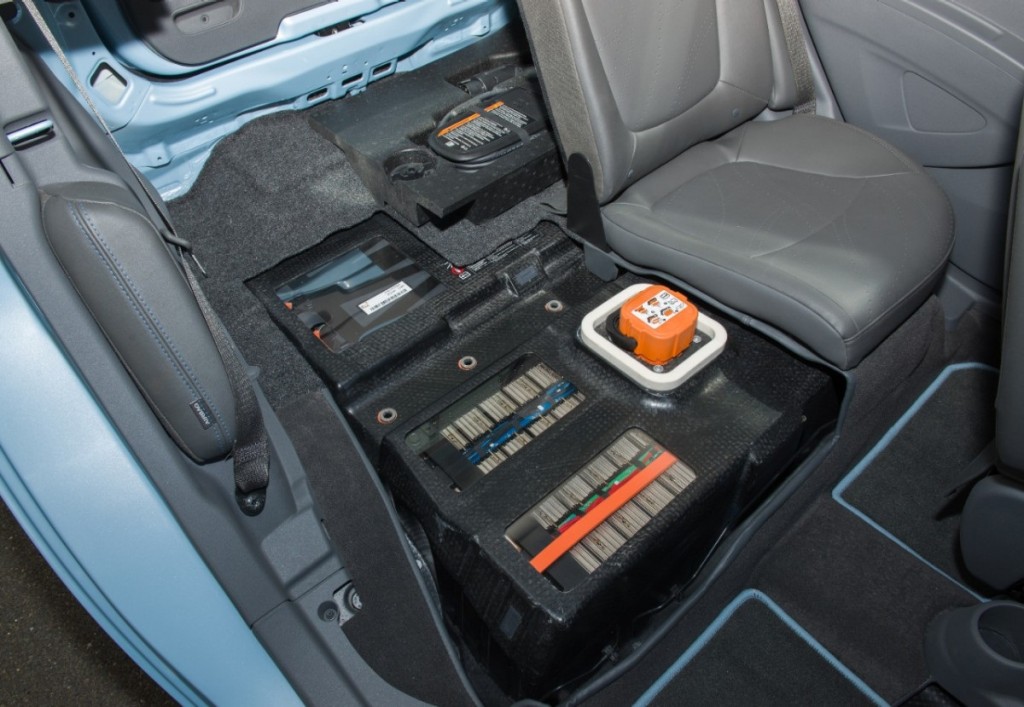
Lithium-ion battery pack for 2014 Chevrolet Spark EV electric car
It's a major threat to national security: A natural resource needed by one or many nations is controlled by only a few countries, which don't much like how the rest of the world runs itself.
It applies to oil.
It applies to rare-earth metals.
Some worry it also applies to lithium, the element used in batteries that power the fast-growing segment of plug-in electric vehicles.
But in the future, the U.S. may be able to supply all the lithium it needs for the battery cells used in electric cars--even at much higher volumes than are sold today.
Data recently released by University of Wyoming researchers indicates that the state's Rock Springs Uplift contain brines that could yield hundreds of thousands of tons of lithium.
The best-case scenario is that the deposits might contain as much as 18 million tons of lithium--or several hundred years' worth at current production rates.
The brines were discovered 10,000 feet below the ground while university researchers were looking for sites to store carbon dioxide.
At least in theory, in the future, power-plant operators might pay to dispose of their carbon-dioxide output (which they now release into the atmosphere), and mine operators could simultaneously sell the brine they pump out to create caverns to store the CO2.
More broadly, the discovery highlights the fact that lithium resources are broadly dispersed across the globe.
While Chile and Argentina are currently the world's largest producers and exporters of the lithium found throughout the Andes Mountains, about half the world's currently known resources are in Bolivia.

Grand Teton, Wyoming
Today, the U.S. imports 80 percent of the lithium it uses industrially, with the remainder supplied from brines recovered in Nevada.
But the Wyoming discovery could make the U.S. entirely self-sufficient in lithium, allowing essentially all parts of a plug-in electric car to be manufactured in North America.
It is, perhaps, ironic that while Wyoming could supply the natural resource required to make electric cars entirely domestic, it was rated worst among six Southwestern states for policies promoting plug-in adoption.
In future, state pride could be invoked to encourage residents to adopt plug-in vehicles: "Driving locally with batteries mined right here at home!"
Well, maybe.
______________________________________________













